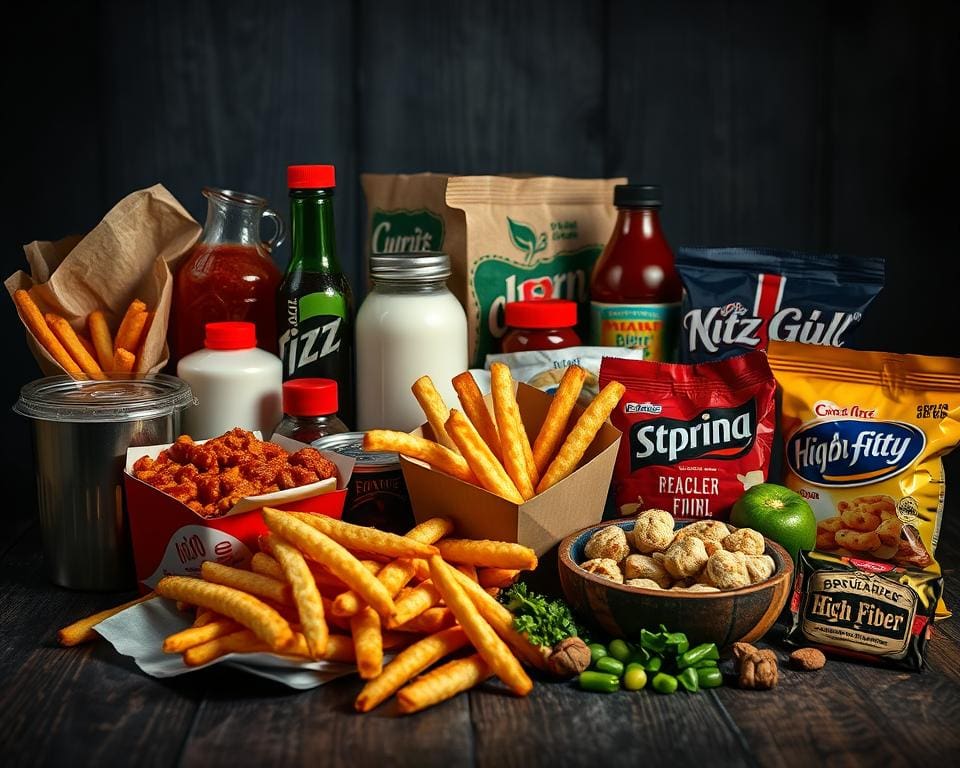Irritable Bowel Syndrome (IBS) affects millions of individuals, and understanding what are the worst foods for IBS is crucial for managing this condition. The worst foods for irritable bowel syndrome often exacerbate symptoms and lead to discomfort. Identifying the foods to avoid with IBS can be a challenge, as everyone’s body reacts differently. This section aims to illuminate the impact of certain food choices on IBS symptoms, empowering readers to make informed dietary decisions for improved well-being.
Understanding IBS and Its Triggers
Irritable bowel syndrome, commonly referred to as IBS, is a prevalent gastrointestinal disorder. It is distinguished by a range of symptoms, including abdominal pain, bloating, and irregular bowel habits. Understanding the nature of this condition enables individuals to manage its effects more effectively. Various factors contribute to the onset of IBS symptoms, with specific foods being significant triggers that can worsen symptoms.
What is Irritable Bowel Syndrome?
IBS affects many individuals and presents a unique set of challenges. This disorder can manifest differently in each person, leading to varying combinations of discomfort and distress. Symptoms often fluctuate between episodes of constipation and diarrhoea, creating uncertainty for those diagnosed. Recognition of IBS is essential in acknowledging its impact on daily life and overall wellbeing.
The Role of Diet in IBS Management
Diet plays a crucial role in the management of IBS symptoms. Identifying foods that worsen IBS symptoms is vital in establishing effective ibs diet restrictions. These restrictions enable individuals to tailor their nutritional choices to minimise discomfort. Research indicates that certain food groups commonly trigger or exacerbate symptoms, making it essential to adopt a mindful approach to dietary habits. Emphasising balanced meals that prioritise gut health can significantly enhance quality of life for those living with irritable bowel syndrome.

What Are The Worst Foods For Ibs?
Recognising and avoiding IBS trigger foods can significantly relieve symptoms for many individuals. A crucial aspect of managing irritable bowel syndrome involves understanding common foods to steer clear of with ibs. These foods often provoke discomfort and gastrointestinal distress, leading to an increase in symptoms. Below, we explore some common culprits and the variability of individual sensitivities.
Common IBS Trigger Foods
Certain foods have gained notoriety for their potential to exacerbate IBS symptoms. Dairy products, particularly full-fat varieties, can be problematic due to lactose, which many people struggle to digest. Gluten is another common offender that can contribute to digestive issues for some individuals, making it essential to evaluate one’s response to wheat products. High-FODMAP foods, such as beans, onions, and certain fruits, also frequently trigger symptoms in IBS sufferers. Recognising these foods can aid in creating an effective dietary strategy.
Individual Food Sensitivities to Consider
Each person’s experience with IBS food sensitivities varies significantly. What may cause discomfort for one individual might be perfectly tolerable for another. This underscores the importance of customising dietary choices based on personal reactions. Keeping a food diary can assist in pinpointing specific IBS trigger foods that need attention. Consulting with a nutritionist can further refine the approach, ensuring that dietary habits support optimal gut health.
Foods to Avoid with IBS
Managing Irritable Bowel Syndrome (IBS) often requires careful attention to dietary choices. Certain food categories commonly present challenges for those affected. Recognising which foods to avoid with IBS can significantly improve one’s quality of life and lessen discomfort.
Dairy Products and Their Impact on IBS
Dairy products can be a source of discomfort for many individuals, particularly those who are lactose intolerant. Common symptoms such as bloating, gas, and abdominal pain often arise after consuming milk, cheese, or ice cream. For these reasons, dairy frequently ranks among the harmful foods for IBS. Alternatives like almond milk, coconut yogurt, or lactose-free products may provide relief without compromising taste.
High-FODMAP Foods: What to Avoid
High-FODMAP foods can complicate IBS symptoms for numerous individuals. These foods include certain fruits, vegetables, legumes, and sweeteners that are poorly absorbed in the small intestine. Examples such as garlic, onions, and beans are notorious for triggering discomfort. Awareness of these high-FODMAP foods enables individuals to make more informed choices to prevent symptom flare-ups.
Spicy Foods and Irritable Bowel Syndrome
Spicy foods, while enjoyable for many, may act as a trigger for IBS symptoms. Ingredients such as chili peppers and hot sauces can irritate the digestive tract, leading to cramping and diarrhoea. Reducing or eliminating spicy foods from one’s diet can lead to increased comfort and fewer IBS-related challenges.
Harmful Foods for IBS Sufferers
For individuals managing irritable bowel syndrome, understanding the implications of various food choices plays a significant role in symptom relief. Among the most harmful foods for IBS sufferers are processed foods and artificial sweeteners. Each group has unique properties that can exacerbate the worst foods for irritable bowel syndrome.
Processed Foods and Their Effects
Processed foods often contain a range of additives, preservatives, and high levels of sodium. These ingredients can lead to increased gut sensitivity and trigger uncomfortable symptoms. Recognising these harmful foods for IBS can be a key step toward a better quality of life. Items such as pre-packaged meals, snack foods, and sugary cereals are common culprits. These products not only lack essential nutrients but can worsen bloating and gas.
Artificial Sweeteners: A Double-Edged Sword
Artificial sweeteners, while calorie-saving alternatives, often present challenges for those with IBS. Many sweeteners, including sorbitol and mannitol, can lead to digestive disturbances and are among the worst foods for irritable bowel syndrome. These sugar substitutes may also disrupt gut microbiota and contribute to feelings of discomfort. Opting for natural sweeteners can favourably impact digestive health and enhance overall well-being.
Identifying Foods That Worsen IBS Symptoms
Understanding the specific foods that worsen ibs symptoms can significantly improve the quality of life for those suffering from this condition. A systematic approach to identifying these triggers often begins with maintaining a food diary. This practice enables individuals to log their daily meals alongside any symptoms experienced, paving the way for more informed dietary choices. Personalisation is key in navigating ibs diet restrictions, as each person’s triggers can differ widely.
Keeping a Food Diary for IBS Management
Documenting meals and symptoms offers valuable insight into individual reactions to food. By observing patterns over time, individuals can identify specific foods that worsen ibs symptoms. Not only does this method help in spotting potential triggers, but it also brings a sense of control over dietary choices, making it easier to adhere to ibs diet restrictions.
Consulting with Nutritionists for Personalised Guidance
Seeking assistance from a qualified nutritionist can enhance the journey toward managing IBS symptoms. Nutritionists can analyse food diaries and provide tailored advice based on personal needs. Their expertise helps in developing a sustainable eating plan that considers individual preferences while effectively minimising the risk of encountering problematic foods. This professional guidance ensures that individuals are well-informed and equipped to make conscious dietary decisions.
Healthy Alternatives to IBS Trigger Foods
When managing IBS, it’s essential to identify healthy alternatives that minimise discomfort while providing necessary nutrition. Understanding what are the worst foods for IBS allows you to make informed substitutions. For instance, consider lactose-free dairy products such as almond or soy milk, which spare your digestive system from the challenges of lactose intolerance. These products are not only gentle on the gut but also offer a delicious way to enjoy your favourite drinks and recipes.
Gluten-free grains, such as quinoa and rice, stand out as excellent replacements for traditional wheat products. They’re lower in gluten and easier to digest, making them suitable for those with IBS. Incorporating low-FODMAP vegetables like carrots, spinach, and zucchini can significantly enhance your meals while avoiding the potential triggers found in high-FODMAP options. These substitutions not only help in managing IBS symptoms but also inspire creativity in your cooking.
By exploring these healthy alternatives, individuals can find empowerment in their dietary choices and create a meal plan that accommodates their condition. It’s crucial to remember that nourishing your body doesn’t have to come at the expense of comfort. Taking small, thoughtful steps towards adopting these healthier options can lead to a more enjoyable and symptom-free dining experience.









